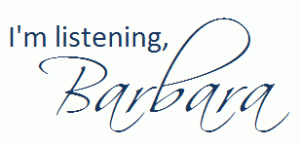 If you are a Georgia Southern University student majoring in Public Relations, these frequently asked questions may help you in planning for advisement week. Thank you, Urkovia Andrews, for compiling this list.
If you are a Georgia Southern University student majoring in Public Relations, these frequently asked questions may help you in planning for advisement week. Thank you, Urkovia Andrews, for compiling this list.
After I finish my CORE, how long will it take to finish courses in my major?
Although major area F is only 40 hours, due to pre-requisites and a selective number of summer courses, students should be prepared to finish area F and their major in two years. Missing registration and not being advised during advising week will cause some students to take longer than two years to finish.
When do I register?
Classes fill quickly. Check WINGS and know when your registration time is. Register as soon as you’re able to! Set your alarm for 2:45 a.m. and be ready to register with the CRNs.
Grades?
In the core, students must earn a “C” or above in area A. This includes College Algebra.
In area F, students must earn a “C” or above.
Areas B, C, D, and E require a passing grade.
You cannot “double-dip” – each course counts only once on the curriculum sheet (COMM 1110 is an example, PRCA 3339 is another).
What if I don’t want to take a foreign language?
INTS 2130 is the course students most often take to fulfill the foreign language requirement if they don’t pursue a foreign language. There are also other options with significant international content in the catalog. Language courses MUST be at least 2000 level to count in this area. If a language class at the 1000 level has been taken, it counts toward the 14 general elective credits.
Is Photography (ART 1335) a good elective to take?
Check with the Art Department on availability for ART 1335 (Photography). Have a backup plan for this section of the curriculum. It’s a popular course.
What’s the recommended order of taking courses in the major?
Take JOUR 2331 (Introduction to Journalism) & COMM 2330 (Introduction to Mass Communication) as soon as possible. The only pre-requisites for these classes are ENGL 1101.
PRCA 2330 (Introduction to Public Relations) is the next course to take. It’s the gateway to the major. Students must take COMM 2330 before taking this class.
PRCA 3330 (PR writing) should be taken next. It’s a pre-requisite for many of the upper division PR courses. It’s also a non-negotiable pre-requisite for campaigns, practicum and internships. PRCA 2330 (Introduction to Public Relations) and JOUR 2331 (Introduction to Journalism) are pre-requisites for this class.
PRCA 3330 (PR writing) and PRCA 4330 (PR research) must be taken before PRCA 4339 (campaigns).
MKTG 3131 (marketing) must be taken before MKTG 3132 (advertising). Students cannot sign-up to take MKTG 3131 until they have completed 55 hrs.
In general, take one theory course at a time. These courses require a significant amount of reading and a research paper. It’s manageable to take a theory course and an applied theory course at the same time.
Read the format of the courses you are interested in prior to signing up for them. For example, it is not advisable to try and take campaigns, pubs, and events in the same semester as each of these courses require significant time commitments outside of class.
What’s the Senior Seminar?
Senior seminar is typically offered in the spring semester and serves as a substitution for an internship. If a student wants to complete an internship AND senior seminar, the senior seminar would count as an upper-division PR elective (it also could count in the “any upper-division comm arts elective” area).
What’s the Practicum?
The one-hour practicum course is designed to prepare you for life after graduation, whether that is graduate school or job placement. The student must complete PRCA 3330 (PR Writing) prior to taking the practicum course.
Where’s the list of “Upper Division Comm Arts Electives”?
Any upper-division comm arts elective means just that – anything with PRCA, JOUR, FILM, BRCT, THEA, COMS, or COMM as long as it starts with a 3 or a 4. Students just need to make sure they meet any necessary pre-requisites (which are defined in the catalog).
What about a Minor?
Consider using your general elective hours for a minor. Descriptions and requirements for minors are located in the catalog. One of the most common minors is business. Students also might be interested in communication studies, marketing, political science, English, art, print management, international studies, a foreign language, women’s and gender studies, and sport management.
What should I do about General Electives?
In general, save the elective section for times when you’ll have a heavy load or are unable to get courses in the major. There’s no need to fill that area up right away unless you’re interested in a minor.
Take any writing courses you can – feature writing (JOUR 3332), offered by journalism is a good course for PR students. Also, photojournalism is a good option, JOUR 3333.
Consider what you would like to do with your degree upon graduation and find electives that will provide you with additional knowledge of interest. General electives are anything offered on Georgia Southern campus.
What are the Upper Division PR Electives?
Students MUST take at least one upper-division PR elective. Upper division is anything at the 3000 or 4000 level. Examples include PRCA 4332 (PR Crisis Communication), PRCA 3331 (Corporate Public Relations), PRCA 3333 (International Public Relations), PRCA 4335 (Senior Seminar in Public Relations), and PRCA 3339 (Public Relations Publications).
What’s Offered When?
PRCA 3332 (PR Event Management) is offered only in the Spring semester.
PRCA 3330 (Public Relations Writing) is offered every Fall and Spring semester.
PRCA 4330 (Research) is offered every Fall and Spring semester.
PRCA 4339 (Campaigns) is offered every Fall and Spring semester.
PRCA 3339 (Public Relations Publications) is offered every Fall and Spring semester.
PRCA 3711 (Public Relations Practicum) is offered every Fall and Spring semester.
Summer is a good time to intern, take general electives or core courses, but do NOT plan on taking specific, upper-division courses in the major. What’s offered in the summer varies each year.
The other upper-division PR courses are offered on a varying schedule, depending on the professors’ expertise and students’ interest level.
Currently there are no PR courses offered online, as many require a hands-on approach. Courses have been offered online in the past, such as PRCA 2330 (Intro to PR), but this is not, as of now, an every semester occurrence.
What About Internships?
Dr. Lisa Muller oversees the internships. Approved internship listings are posted outside Dr. Muller’s office door, Room 3010.
If a student takes 3 credit hrs. of internship, the 3 hrs. go toward PRCA 4791.
If a student takes 6 credit hrs. of internship, 3 hrs go toward PRCA 4791 and 3 hrs go toward one upper-division PR elective
If a student takes 9 credit hrs. of internship, 3 go toward PRCA 4791, 3 go toward one upper-division PR elective and 3 go toward the 14 hrs. of general electives.
If a student takes 12 credit hrs. of internship, 3 go toward PRCA 4791, 3 go toward one upper-division PR elective and 6 go toward the 14 hrs. of general electives.
Students may not complete internships for degree credit until AFTER they have successfully completed PRCA 3330 (PR Writing).
On-site hours to receive internship credit is as follows:
3 hrs=200 hrs at the job site
6 hrs=300 hrs at the job site
9 hrs=400 hrs at the job site
12 hrs=500 hrs at the job site
Students are welcome to submit proposals for their own internship site; however, these proposals are due the 30th day of the first month of school the semester prior to interning. For example, if a students wants to intern in the summer than his or her proposal is due Jan. 30, the semester prior to their internship.
Students should look for informational meetings concerning internships the semester prior to the semester they wish to intern. At this meeting, questions regarding the internship process will be addressed, along with paid and non-paid sites, and students can pick-up an internship application.
When Should I Do Graduation Clearance?
Students can clear for graduation four semesters (including summer) prior to their expected graduation date. Clearing provides a triple-check on a student’s academic program of study in that the student, the advisor, and the graduation counselor review all the courses remaining for a student to take. It is NOT recommended that a student complete this process his or her last term.
Students should pick-up a graduation clearance packet from the Registar office, make an appointment to meet with their advisor outside scheduling week, bring their unofficial transcript from Wings, and their folder from the main office. Once graduation clearance is complete a copy of the form should be placed in the students’ folder and the student should return the completed form to the Registar’s office.
Photo Credit: “THAT is the question”: http://www.flickr.com/photos/torley/2726594777/






 If you are a Georgia Southern University student majoring in Public Relations, these frequently asked questions may help you in planning for advisement week. Thank you, Urkovia Andrews, for compiling this list.
If you are a Georgia Southern University student majoring in Public Relations, these frequently asked questions may help you in planning for advisement week. Thank you, Urkovia Andrews, for compiling this list.